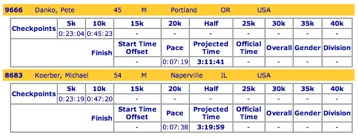The San Francisco Chronicle landed on our doorstep this morning for the first time in a couple of months; we actually canceled it, which is a subject worth a site unto itself, and I think the Hearst Corporation is trying to sneak back in (“You didn’t really want us to go away, did you?”); yesterday, we got a subscription offer: six months for fifteen bucks.
Anyway, the Chron materialized out of the predawn mist today. On the front page is a story about Comet Holmes, blogged here several days ago, and I wasn’t nearly at the leading edge of the Holmes enthusiasts. So yes, they’re a little late to the comet-gazing party. On the other hand, we’ve been pretty well socked in the last several evenings in the Bay Area, so no sightings from here. A couple nights ago, though, I took a quick trip up to the Sierra with my neighbor Piero, and the night sky was brilliant and clear: the comet was very bright, though you still had to know what you were looking for to find it (one apparent reason: the comet’s tail is extended directly away from Earth; so what you actually see is an immense cloud of illuminated ice and dust apparently being blown off the comet’s body).
The Chron’s story, while waxing expansively on Comet Holmes’s stunning emergence from nearly invisible object to celestial wonder, treats the phenomenon as something of an imponderable — just one of those things that astronomers scratch their heads about. The truth is, even the better-informed articles on the subject, like one last week in the Boston Globe, make it clear that no one really has a clear answer to why the comet is behaving the way it is. But there’s a range of speculation out there, and as long as you’re having your veteran science reporter write up the comet, and as long as readers are likely to be curious about the why of what they’re seeing, you might as well relay the best-educated guesswork in the field. The Chron’s story gives a couple lines to that near the end, but only after dutifully including notes from a local observer who calls the comet “amazing!” despite having his view obscured by trees and clouds.
Even if the story isn’t particularly well done, it does convey the wonder of seeing this thing that’s been invisibly sailing through space forever and suddenly reveals itself. I suppose that’s the best sort of encounter in journalism or literature: a story that uncovers an absorbing person or place or phenomenon that has been proceeding on his/her/its way for years and suddenly commands attention.
One case in point from today’s New York Times: a front-page story about the high school football team in Smith Center, Kansas — hey, I rode my bike into Smith County last year! In a high school with about 150 kids, in a town of just under 2,000, the team has won 51 in a row. In winning all 10 of its games so far this year, the team has outscored opponents 704-0. In one game, they scored 72 points in the first quarter. It’s a great tale.
Of course, in a sense, the Times can’t leave well enough alone. Landing in a symbol-freighted landscape — it’s small-town America, it’s the Great Plains — the Times investigates just how this juggernaut came to be and what it means. They find a coach who’s been on the scene for generations. And naturally, I suppose, they find that the lessons the coach teaches and that the kids and townsfolk learn isn’t really about football, it’s about life:
“None of this is really about football,” [Smith Center coach Roger Barta] added. “We’re going to get scored on eventually, and lose a game, and that doesn’t mean anything. What I hope we’re doing is sending kids into life who know that every day means something.”
Yes, of course. But presumably, the coach for the team that suffered that 72-point first-quarter stomping is trying to send kids into the world with some constructive ideas about living life, too (“Boys, sometimes you’re the windshield, and sometimes you’re the bug”). Presumably, too, Coach Barta has some athletes on his squad who are especially adept at administering lessons in blocking, tackling and execution to opponents. But the Times doesn’t mention any ot that. Instead, it insists on seeing not a gridiron story — not important enough to its elite audience, I imagine — but a wondrous and somewhat mysterious comet — why, after all, doesn’t the same story unfold everywhere? — glowing out there under the evening lights on the prairie.
Technorati Tags: comet holmes, journalism, kansas, smith center, sports
Like this:
Like Loading...


